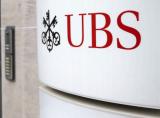New Delhi, Mar 29: Seeking to come clean on illicit funds amid intense government pressure, Swiss banks have asked their Indian clients to provide fresh undertakings to ensure that untaxed money is not stashed in their accounts.
 Swiss banks, long perceived to be safe havens for parking unaccounted funds, have also started asking for auditor certificates from high net worth individuals and corporate clients to vouch for the "clean status" of their money.
Swiss banks, long perceived to be safe havens for parking unaccounted funds, have also started asking for auditor certificates from high net worth individuals and corporate clients to vouch for the "clean status" of their money.
The latest development comes at a time when India is aggressively making efforts to bring back illicit money parked by its citizens overseas and Switzerland has also agreed to co-operate on the issue.
Sources said that Swiss banks are asking their Indian customers to provide fresh undertakings that all taxes have been paid on funds deposited by them in these accounts.
According to them, banks are also asking both corporate and individual clients to furnish auditor certificates certifying "clean status" of funds, assets and income related to their accounts.
Such directives are believed to have been issued to high networth individuals, wealth management and portfolio management clients, they added.
Queries sent to banking majors, including HSBC and Credit Suisse, related to the issue, did not elicit immediate response.
Indian authorities are already pursuing cases related to its citizens who had kept unaccounted funds in HSBC Switzerland, after receiving a list of names from the French government few years back.
According to sources, HSBC has been asked by Indian authorities to show cause why action should not be initiated against it in case of non-cooperation with regard to "suspected tax evaders and offenders of tax crimes".
Besides, HSBC has come under regulatory cross hairs in multiple jurisdictions including India, following an expose that revealed thousands of entities allegedly parked their illicit funds at its Swiss branch.
To curb the blackmoney menace, a Supreme Court constituted special investigation team is probing various cases while the government would soon be coming out with a stringent that provides for hefty penalties as well as imprisonment for stashing away unaccounted money.
Recently, Finance Minister Arun Jaitley had said that all efforts are being made to bring to book those who have been named in the HSBC bank list of black money holders and there are evidence against them.
There were as many as 628 names in the HSBC list. "We have in this process found that the total income which is evaded is to the extent of Rs 3,250 crore for which there is a tax impact. That assessment has been completed," Jaitley had said about the HSBC list.
"In more than 200 of those cases, assessment have been completed, demands have been placed on them. In some cases recovery have been made... Additionally, in about 77 of those cases, criminal prosecution have already been finalised. The details of each one of them are with us," Jaitley had told the Rajya Sabha this month.
Meanwhile, the Swiss government is slowly moving towards automatic exchange of tax information with various jurisdictions, including India.
Earlier this month, Swiss government said talks on automatic exchange of tax information with India would begin at the "earliest" once the domestic procedures are in place.
Citing discussions between officials of both sides last October, a Swiss Federal Department of Finance spokesperson had said talks on automatic exchange of tax information would start at the earliest once the domestic procedures are completed in Switzerland.
Last year, Indian and Swiss officials held high level deliberations on boosting co-operation with regard to the black money problem.
"Switzerland took note of the interest expressed by India and it was agreed between Revenue Secretary Shaktikanta Das and State Secretary Jacques de Watteville that talks will commence at the earliest after completion of Swiss domestic procedures regarding the approval of the legal foundations for automatic exchange of information," the official had said.
The government's proposed legislation to curb blackmoney problem provides for prosecute those stashing illicit wealth abroad with 10 year rigorous imprisonment, among other provisions.
'The Undisclosed Foreign Income and Assets (Imposition of Tax) Bill, 2015,' proposing that it would come into effect from April 1, 2016.
According to the government, the legislation would provide a one-time compliance opportunity for a limited period to persons who have any undisclosed foreign assets which have hitherto not been disclosed for the purposes of income-tax.
Such persons may file a declaration before the specified tax authority within a specified period, followed by payment of tax at the rate of 30 per cent and an equal amount by way of penalty.
Outside this window, a tax would be levied at a flat rate of 30 per cent, while the penalty would be 90 per cent of the undisclosed income.





Comments
Add new comment